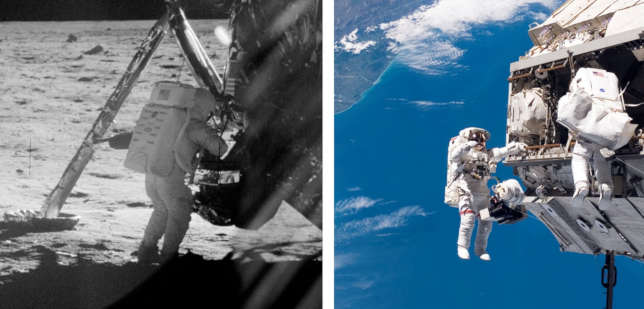Microsoft Partners with NASA for Lesson Plans
The Microsoft-NASA collaboration will give students hands-on experiences to think about the considerations that astronauts need to think about when living in space.

Microsoft Education and NASA have created eight new lesson plans to teach students about the challenges of living in space. One of the design challenges focuses on the “Astro Socks” project which has students investigating solutions reduce the impact of working in microgravity on astronauts’ feet. Students will also be able to work in 3D to build their own modules for the International Space Station.
Another lesson plan introduces the phenomenon of microgravity through hands-in experiments and a virtual reality experience. Four other lessons relate to data collection and analysis. They challenge students to prove the ideal gas law, measure radiation in our environment and examine light waves and frequencies within the electromagnetic spectrum. Students will be able to capture live data and relate their observations about life in space to their own experiences on Earth.
Lastly, students will be introduced to the Earth’s biomes through photographs taken from space. They can explore the techniques scientists employ to predict climate change with artificial intelligence.
More information about the lesson plans created through a collaboration with NASA can be found here.
About the Author
 Sara Friedman is a reporter/producer for Campus Technology, THE Journal and STEAM Universe covering education policy and a wide range of other public-sector IT topics.
Sara Friedman is a reporter/producer for Campus Technology, THE Journal and STEAM Universe covering education policy and a wide range of other public-sector IT topics.
Friedman is a graduate of Ithaca College, where she studied journalism, politics and international communications.
Friedman can be contacted at [email protected] or follow her on Twitter @SaraEFriedman.
Click here for previous articles by Friedman.